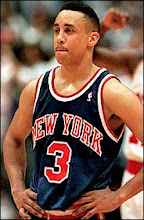After Auburn's blowout win over South Carolina in the SEC Championship Game, they'll play for a National Championship. Also, their quarterback Cam Newton, who accounted for six touchdowns in the game, will likely be the most lopsided Heisman Trophy winner in college football history.
Four days ago, the NCAA could've taken all of that away.
Auburn declared their star quarterback ineligble on Tuesday, and then immediately filed for him to be declared eligible. The NCAA granted their request, but in doing so, went against one of their most important rules.
NCAA Bylaw 12.3.3: "individuals or entities are not allowed to represent a prospective student-athlete for compensation to a school for an athletic scholarship.”
The NCAA cleared Newton because they “couldn’t find sufficient evidence that either Cam, or Auburn, knew of the situation with his father.” Um, that’s great and all, but whether or not Cam Newton had any idea what his father was doing is completely irrelevant. The Bylaw clearly states that no one is allowed to “represent” Cam - but his father did. The NCAA admitted that rules were broken when Cecil Newton and Kenny Rogers (not the pitcher) tried to arrange a pay-for-play system with Mississippi State during Cam’s second recruiting rodeo. So, by keeping Cam Newton eligible, the NCAA essentially ignored their own Bylaw, and in the same breath opened up a very dangerous can of worms.
As has been said all this week by pundits nationally, what is to stop family members/friends/coaches from coming to schools recruiting their children/friends/players with their hands out? Even a player can organize an elaborate pay-for-play scheme, as long as he finds a middle man. All the player has to do is plead ignorance. The worst thing that the NCAA could do is turn around months later and rule Cam Netwon ineligible. That’ll likely mean another flawed National Champion, and the 2nd tarnished Heisman in five years.
Subscribe to:
Post Comments (Atom)



No comments:
Post a Comment